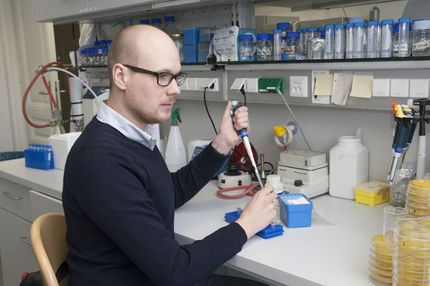FDA approves Femara as first-line hormonal treatment for advanced breast cancer in postmenopausal women
Largest study of its kind shows Novartis drug is more effective than current gold standard
Novartis announced today that the US food and Drug Administration has approved Femara® (letrozole tablets) for the first-line treatment of postmenopausal women with hormone receptor positive or hormone receptor unknown locally advanced or metastatic breast cancer. Most postmenopausal women with advanced breast cancer fall into these tumor receptor categories.
Approval of the new indication followed a priority review by the FDA and a unanimous recommendation from the FDA's Oncologic Drugs Advisory Committee. The recommendation was based on data from the largest single study ever to evaluate a hormonal therapy in this setting. The study found that Femara was significantly more effective than tamoxifen in multiple efficacy endpoints. Tamoxifen has traditionally been the standard of therapy for this indication.
"Novartis is pleased that the FDA has recognized Femara's strong efficacy and safety profile and has deemed it worthy of the first-line indication," said David Epstein, President, Novartis Oncology. "We look forward to soon being able to offer Femara as first-line hormonal therapy all over the world to postmenopausal women with advanced breast cancer."
Study details The Phase III trial on which the FDA based its decision was a head-to-head, randomized, double-blind, multi-center trial compared with the use of Femara versus tamoxifen in more than 900 postmenopausal women who had locally advanced (stage IIIB) disease, metastatic breast cancer, or recurrences not amenable to treatment with surgery or radiotherapy.
The study demonstrated that Femara delays progression of advanced breast cancer for 9.4 months, compared with 6.0 months for tamoxifen. Results also indicated significant differences between Femara and tamoxifen with respect to overall tumor response rates (30% vs. 20%), clinical benefit (49% vs. 38%) and time to treatment failure (9.1 months vs. 5.7 months / 40 weeks vs. 25 weeks). Femara and tamoxifen were equally well tolerated.
Supporting the filing was a Phase III randomized controlled trial of 324 postmenopausal women with large localized or locally advanced breast cancer tumors, who were given Femara or tamoxifen as pre-operative treatment to reduce tumor size before breast-conserving surgery. Clinical responses after four months of preoperative therapy were significantly better for Femara than for tamoxifen (55% versus 36%).
"FDA approval of this new indication means that thousands of postmenopausal women with advanced breast cancer will have a more effective hormonal treatment option," said David Parkinson, MD, Vice President, Clinical Research at Novartis Oncology. "Novartis Oncology is proud to be at the forefront of the development of this and other products that can make a significant difference in patients' lives."
About Femara Femara, an aromatase inhibitor, is a once-a-day oral treatment that was first approved for marketing in 1997 for the treatment of advanced breast cancer in postmenopausal women with disease progression following antiestrogen therapy. In July 2000, Novartis submitted a supplemental New Drug Application (sNDA) for first-line therapy in advanced breast cancer and, in August 2000, the sNDA received a priority review designation from the FDA.
In postmenopausal women, the primary source of estrogen is from fat, liver, muscle, and breast tissue through a process that turns adrenal androgens into estrogen, which stimulates the growth of certain hormone-dependent cancer cells. A breast tumor itself also may generate estrogen. Femara works by binding to the enzyme aromatase and blocking it from converting adrenal androgens to estrogen in these tissues.
Femara is currently available in more than 75 countries worldwide as a treatment for advanced breast cancer in postmenopausal women with disease progression following antiestrogen therapy. Regulatory submissions for the first-line indication have also been filed globa
Most read news
Topics
Organizations
Other news from the department research and development

Get the chemical industry in your inbox
By submitting this form you agree that LUMITOS AG will send you the newsletter(s) selected above by email. Your data will not be passed on to third parties. Your data will be stored and processed in accordance with our data protection regulations. LUMITOS may contact you by email for the purpose of advertising or market and opinion surveys. You can revoke your consent at any time without giving reasons to LUMITOS AG, Ernst-Augustin-Str. 2, 12489 Berlin, Germany or by e-mail at revoke@lumitos.com with effect for the future. In addition, each email contains a link to unsubscribe from the corresponding newsletter.





















































